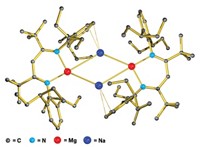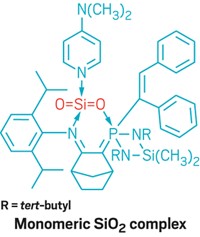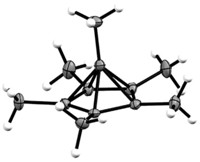Advertisement
Grab your lab coat. Let's get started
Welcome!
Welcome!
Create an account below to get 6 C&EN articles per month, receive newsletters and more - all free.
It seems this is your first time logging in online. Please enter the following information to continue.
As an ACS member you automatically get access to this site. All we need is few more details to create your reading experience.
Not you? Sign in with a different account.
Not you? Sign in with a different account.
ERROR 1
ERROR 1
ERROR 2
ERROR 2
ERROR 2
ERROR 2
ERROR 2
Password and Confirm password must match.
If you have an ACS member number, please enter it here so we can link this account to your membership. (optional)
ERROR 2
ACS values your privacy. By submitting your information, you are gaining access to C&EN and subscribing to our weekly newsletter. We use the information you provide to make your reading experience better, and we will never sell your data to third party members.
Synthesis
The Search For Cyanoform Is Over
Organic Chemistry: After a century of trying, chemists isolate one of the strongest carbon-based acids known to exist
by Stephen K. Ritter
October 5, 2015
| A version of this story appeared in
Volume 93, Issue 39
Cyanoform, HC(CN)3, also known as tricyanomethane, is sometimes listed in organic chemistry textbooks as one of the strongest carbon-based acids known (pKa of –5.1 in water). But after more than a century of chemists trying to make cyanoform, questions have remained as to whether they truly have. The best researchers have been able to do before now is get a fleeting glimpse of the molecule by microwave spectroscopy in the gas phase at very low pressure. Researchers in Germany report they have finally figured out the essential experimental conditions necessary to isolate and fully characterize the celebrated compound and confirm its existence (Angew. Chem. Int. Ed. 2015, DOI: 10.1002/anie.201506753). Chemists had assumed cyanoform would be stable at room temperature in water. Among the attempts to make the compound, chemists have tried using sulfuric acid to protonate salts of tricyanomethanide, (NC)3C–. Theresa Soltner, Jonas Häusler, and Andreas J. Kornath of Ludwig Maximilian University of Munich instead used anhydrous hydrogen fluoride as a reactant and solvent with calcium tricyanomethanide at low temperature. The team found that cyanoform can be isolated as a crystalline solid, but it’s only stable below –40 °C and is moisture sensitive.





Join the conversation
Contact the reporter
Submit a Letter to the Editor for publication
Engage with us on Twitter